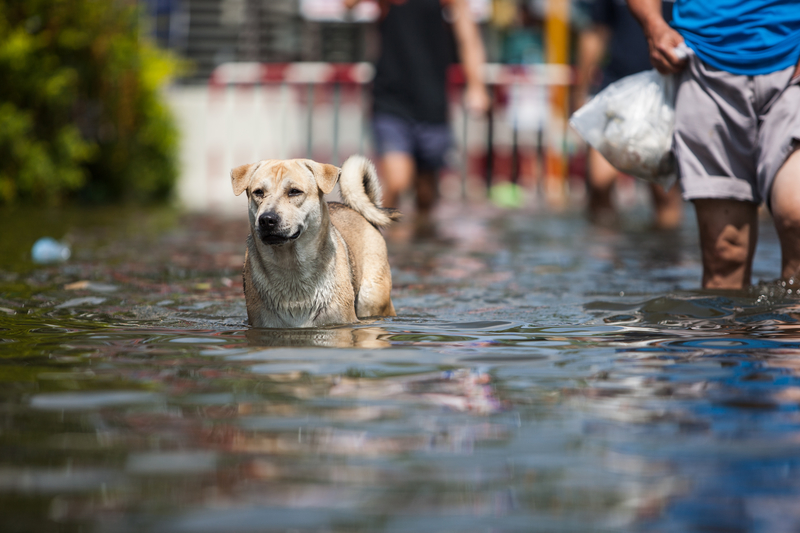Your pet(s) relies on you to keep him or her safe and they deserve to be taken away from the threat with you. You can't take that responsibility lightly. Don't let your pet end up lost after a natural disaster, or even worse. By following the guidelines and checklist below, you can be sure that your pet won't be one of the things you lose during a crisis.
How Can You Prepare?
Plan to take your pets with you in an evacuation. If it is not safe for you to stay, it is not safe for them either.
- Know which hotels and motels along your evacuation route will accept you and your pets. Call ahead for reservations. Ask if no-pet policies could be waived in an emergency.
- Most Red Cross shelters cannot accept pets. Service animals that assist people with disabilities are allowed in Red Cross shelters.
- Know which friends, relatives, boarding facilities, animal shelters or veterinarians can care for your animals in an emergency. Prepare a list with phone numbers.
- Make sure that your pet’s vaccinations are current and that all dogs and cats are wearing collars with securely fastened, up- to-date identification.
- Consider having your pet “microchipped”.
What Should You Do?
Assemble a portable kit with emergency supplies for your pets. Your kit should include—
- Sturdy leashes, harnesses and/or carriers.
- Food, drinking water, bowls, cat litter/pan and a manual can opener.
- Medications and copies of medical records stored in a waterproof container.
- A first aid kit.
- Current photos of you with your pet(s) in case they get lost.
- Information on feeding schedules, medical conditions, behavior problems, and the name and number of your veterinarian.
Know What to Do As the Disaster Approaches
- Call ahead to confirm emergency shelter arrangements for you and your pets.
- Ensure that all pets are wearing collars with securely fastened, up-to-date identification.
- Check that your pet disaster supplies are ready to take at a moment's notice.
- Bring pets inside so you won’t have to search for them if you need to leave quickly.
After a Disaster …
- Pets may become disoriented, particularly if the disaster has affected scent markers.
- Be aware of hazards at nose and paw or hoof level.
- Consult your veterinarian if any behavior problems persist.
Emergency Action Plans for Your Family Should Include Your Animals—All of Your Animals
For information on disaster planning and emergency actions to take for livestock, horses, birds, reptiles or other small animals, such as gerbils or hamsters, please visit RedCross.org, the Humane Society of the United States (www.HSUS.org) or Ready.gov.
Do you have any other tips for evacuating your pet with you in the event of a natural disaster?
Article Source: The Weather Channel
